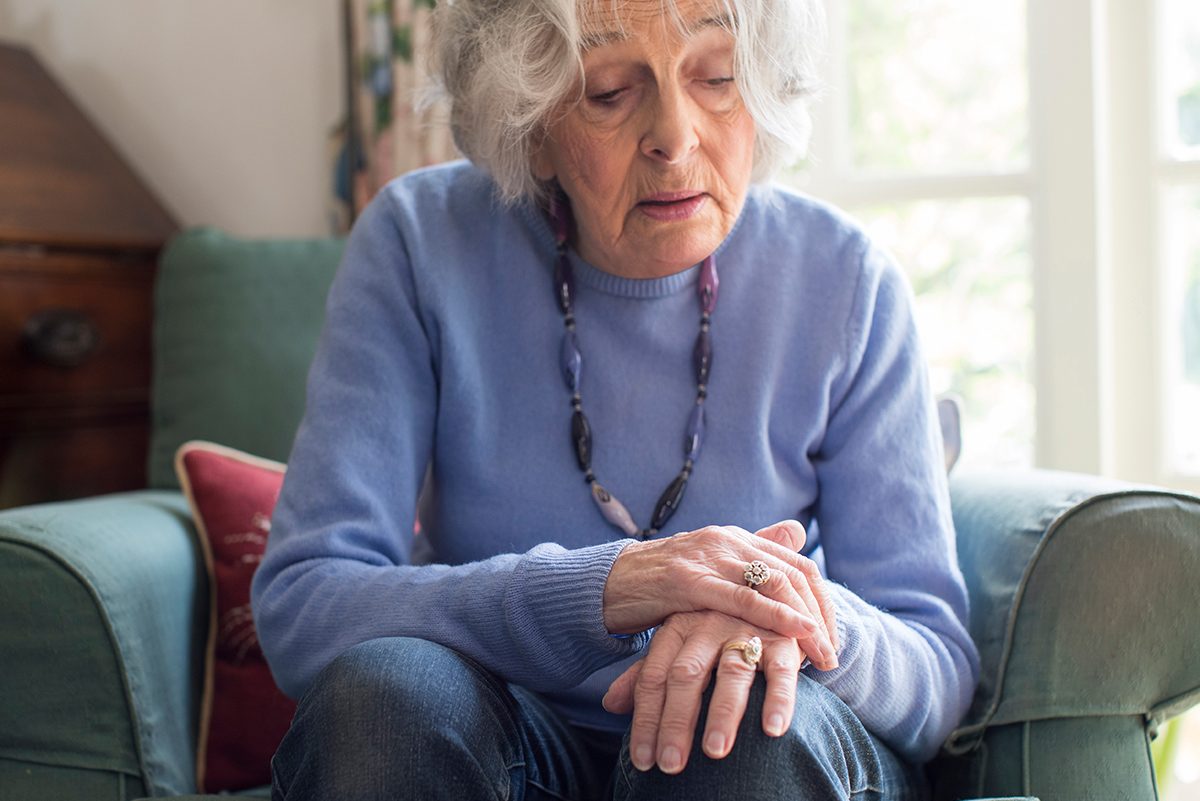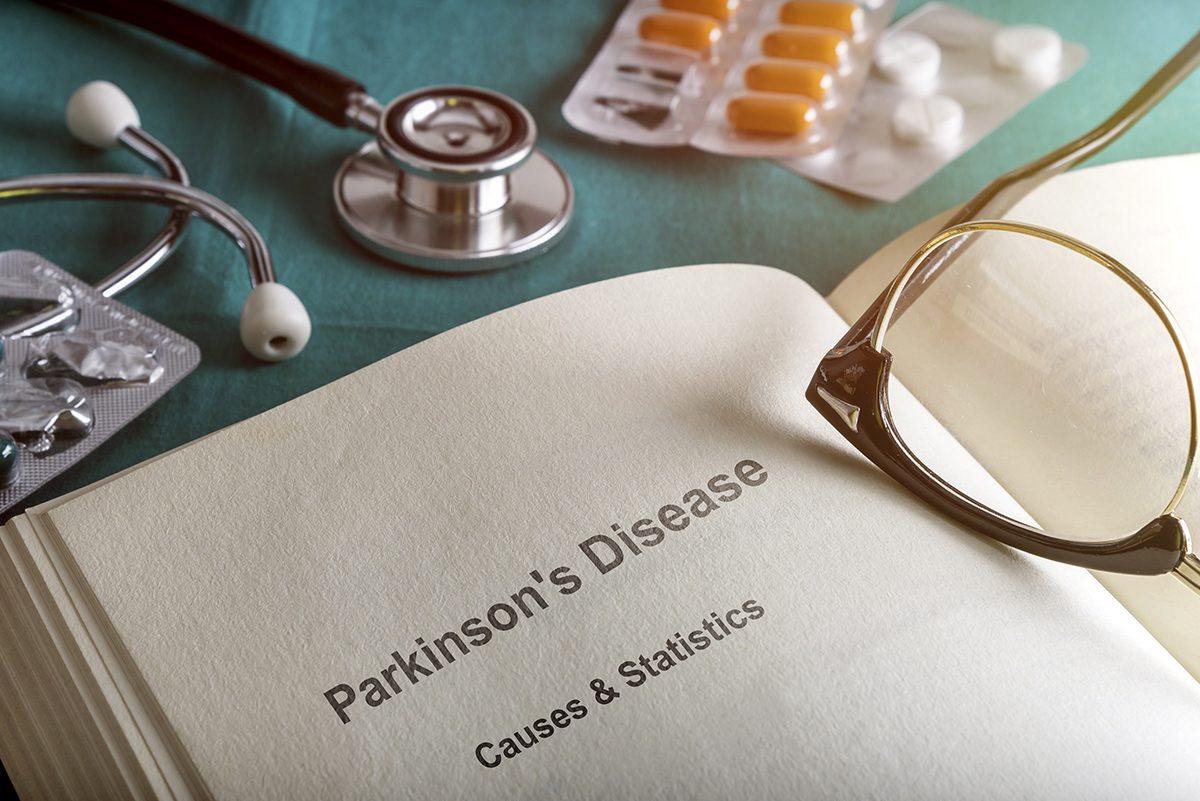Parkinson's disease is a neurological disorder that can cause uncontrolled movements like shaking, hand tremors and loss of balance. According to the Parkinson's Foundation, "Nearly one million people in the U.S. are living with Parkinson's disease (PD). This number is expected to rise to 1.2 million by 2030. Parkinson's is the second-most common neurodegenerative disease after Alzheimer's disease." In addition, "Nearly 90,000 people in the U.S. are diagnosed with PD each year. More than 10 million people worldwide are living with PD," the foundation's site states, and that includes actor Michael J. Fox who uses his celebrity platform to raise awareness and over 1 billion dollars for research so far.
There's currently no cure for the condition, but according to Parham Yashar, MD FACS FAANS, Board-Certified in General, Spinal, Cranial Neurosurgery, Board-Certified in CNS Endovascular Neurosurgery, President, Yashar Neurosurgery, Stroke Medical Director, Dignity Health Northridge Hospital there are ways to lower the chance of getting Parkinson's. "There are suggestions for ways to potentially help reduce your risk of developing Parkinson's Disease. In some studies, caffeine has been associated with a lower risk of developing PD. Exercise, such as aerobic or physical activity may be protective according to some meta-analysis studies performed."
Dr. Yashar continues, " Other protective factors include use of ibuprofen, a non-steroidal anti-inflammatory drug, statins (which are used to help lower blood cholesterols levels in patients), and interestingly there is an inverse-correlation between Parkinson's disease and smoking–and I definitely do NOT recommend starting to smoke in order to reduce your risk of PD as smoking has a whole host of other harmful and carcinogenic effects."
If you notice any of the signs that neurologists explain below to Eat This, Not That! Health, please see a physician for a Parkinson's exam immediately and consult with your doctor for medical advice. Read on—and to ensure your health and the health of others, don't miss these Sure Signs You've Already Had COVID.
Liang Wang, MD Neurologist with Dignity Health Northridge tells us, "We commonly think of Parkinson's as a condition with a tremor and slowness of movement; while that's true, there are many other what we call non-motor symptoms that can be just as prominent and sometimes more disruptive to quality of life, such as personality changes, decline in thinking and memory, acting out dreams, difficulty with swallowing and constipation, and mental health issues. Most recently research has suggested that what we think of as Parkinson's can be grouped into subtypes, and this is a hot area of research."
Dr. Yashar adds, "Parkinson's disease is a progressive neurodegenerative disease that affects a part of the brain known as the substantia nigra. Specifically, the cells that produce dopamine are affecting, causing the constellation of symptoms seen in patients with PD. Parkinson's disease isn't a single condition, that symptomatically is exactly the same for every patient. It is actually a complex neurological condition that can have a variety of effects including both psychiatric and movement-related symptoms. While any adult can potentially develop Parkinson's disease, it is uncommon among patients under 40 years of age, with the average patient being around 70-71 years old at the time of their diagnosis."

Dr. Wang explains, "Unlike Alzheimer's disease and other neurodegenerative diseases, most people with Parkinson's have normal or near normal lifespan. The disease itself is usually not fatal, but rather complications such as pneumonia and infection and fall-related injuries. Since Parkinson's disease is essentially a disease where the dopaminergic cells of the brain die off, every medication used to treat PD essentially tries to replace the dopamine that is lost.
The mainstay of PD treatment is still carbidopa-levodopa, commonly known as Sinemet, that can be taken as frequently as needed (sometimes every other hour) to relieve certain symptoms such as tremor and slowness of movement. It is important to note that medications only mask symptoms, there are no medications to actually slow or stop the disease process. There are many new medications that have been developed, and beyond the scope of this article to talk about here, but every medication developed does essentially the same thing: more dopamine in the brain.
Most recently, advances in science have allowed neurosurgeons and neurologists to develop a brain stimulator that is implanted directly into certain structures of the brain that are impacted by PD and can greatly reduce the need for medications. This is called deep brain stimulation, and while it is not suitable for every PD patient, it can be life-changing for those that qualify! And there are many, many current drugs under clinical trials to target the specific disease process that can hopefully slow the disease down, not just minimize/mask symptoms."
According to Dr. Yashar, "The expected lifespan for a patient with Parkinson's is generally similar to or slightly shorter than that of your average patient without it. This is mainly because patients are often diagnosed with Parkinson's when they're older in life. It is often quoted that a patient with Parkinson's disease may live another 10 to 20 years after their diagnosis. However, the older a patient is at the time of diagnosis, their life expectancy tends to be shorter than if they were diagnosed at a younger age in life.
There are a variety of treatment options for patients who are newly-diagnosed with Parkinson's disease. A first-line treatment plan should include education, support, exercise and adequate sleep and nutrition. Medications are also available for the treatment of PD. Unfortunately these are used to help patients with the symptoms of parkinson's disease, and none actually alter the course of this progressive disease nor are curative. A medication that is commonly prescribed is levodopa, the main precursor in the synthesis of dopamine. Compared to other medications, levodopa has the best effects on a patient's movement, quality of life, and performing routine activities during an average day. Surgical options such as deep brain stimulation, can be considered in some patients, especially when the effects of the levodopa no longer provide them the benefit they once achieved."

Dr. Wang says, "PD affects so many different facets of life, I could write a small book on it! But here are the ones that I think are important to know. Tremor and slowness of movement affecting the ability to get around is a hallmark of the disease and what we base a lot of the treatment on. There is something called "freezing of gait" which can make it really hard to walk and literally freeze in place. Difficulty swallowing and constipation are also very common because of stiffness in the muscles controlling digestive function. In addition there are many non-motor symptoms that can be equally disabling if not more disruptive.
These include: Trouble sleeping and physically acting out dreams that can be disturbing to bed partners (what we call REM-behavior disorders or RBD). Personality and mental health changes that cause patients to develop depression, anxiety (beyond just anxiety over knowing what lies ahead in the disease for him or herself), difficulty with multitasking and memory and ability to plan for things. Because of the use of dopamine, there are also side effects to medications that are common as well, such as impulse control disorders where people develop addictions to gambling, sex, shopping, etc and blood pressure can drop after taking medications and cause dizziness and even falls."

According to Dr. Wang, "Resting tremor (tremor that only happens when hands are at rest and not moving), particularly that begins on one side only or affects one side more than the other:
Slowness of movement
Smaller handwriting
Difficulty walking/repeated falls not due to tripping
Muscle stiffness
Constipation
Acting out dreams
If you or a loved one might have symptoms of Parkons's disease, please go see a doctor for professional advice!"
Dr. Yashar explains, " The classic signs of Parkinson's disease are described as: tremor, bradykinesia and rigidity. Tremor is essentially shaking of the hand that occurs while a patient is resting, compared to a tremor that occurs when a patient may be using a spoon to eat soup or drink their coffee from a mug. For 70 to 80% of patients, tremor is the first sign of Parkinson's disease. Bradykinesia is a term used to describe a slowness that a patient can experience with movements, which can often be seen when a patient is walking.
As a result, they start to take shorter, faster steps in order to keep their "normal" walking speed, an abnormality often called a "festinating gait." Lastly, rigidity refers to stiffness and even pain that patients with Parkinson's disease can experience. All of these can affect simple tasks such as walking, getting dressed, and eating. Patients can even describe these symptoms as a generalized weakness, imbalance when standing or walking, and a lack of coordination."

Dr. Wang says, "Age is probably the strong risk factor. Most commonly adults in their 60s and 70s, although we know many patients can get PD above or below this age range. The most common risk factors (not strongly associated) include head/brain injury and exposure to certain rare toxins. There are some genes associated with Parkinson's including types of familial Parkinson's disease where if you get the mutated gene, you will get Parksons's."
Dr. Yashar tells us, "It is unknown who is specifically at risk of developing Parkinson's disease. However, age is the biggest risk factor. Additionally, men have a slightly higher rate of developing PD compared to women, and certainly having a first-degree relative (such as a parent, sibling, or child) can increase your risk of developing PD by 2-3 times. Other risk factors include exposure to pesticides, reduced levels of dietary and/or sun-derived vitamin D, exposure to solvents such as trichloroethylene, to name a few."
The post Signs You May Have Parkinson's, Including Stiffness, and When to Seek Help appeared first on Eat This Not That.
----------------
By: Heather Newgen
Title: Signs You May Have Parkinson's, Including Stiffness, and When to Seek Help
Sourced From: www.eatthis.com/signs-you-may-have-parkinsons-and-when-to-seek-help/
Published Date: Fri, 23 Dec 2022 12:30:04 +0000
Read More
Did you miss our previous article...
https://naturesmart.us/fitness/7-grocery-chains-with-the-best-chocolate-selections
 HealthWellnessFitnessBeautyVideosPrivacy PolicyTerms And Conditions
HealthWellnessFitnessBeautyVideosPrivacy PolicyTerms And Conditions
